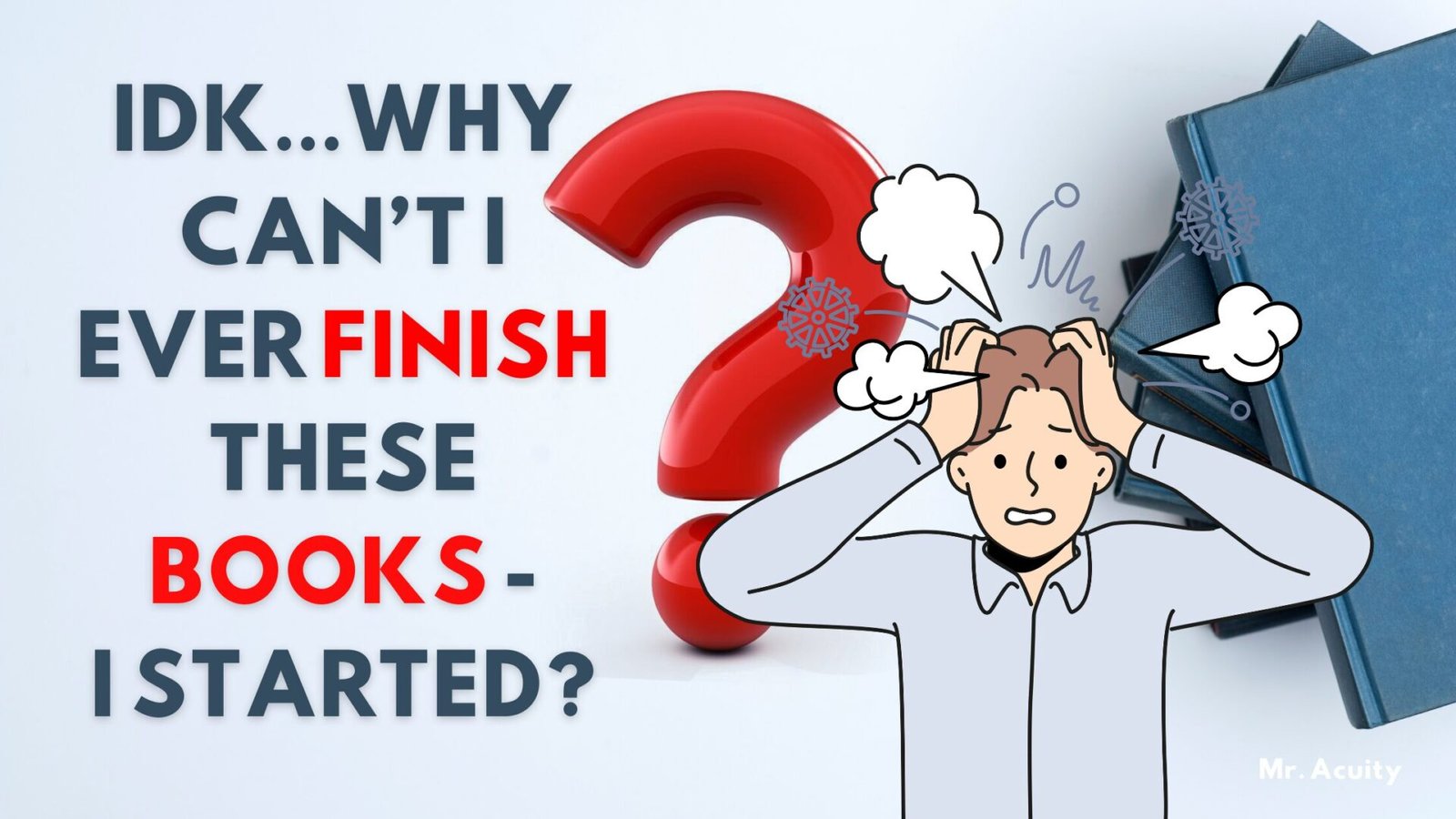
Why You Never Finish Books You Start
Table of Contents
Why You Never Finish Books You Start
Meet Alex, an avid reader with an enviable bookshelf but a frustrating habit: rarely finishing a book once started. Alex’s story is not unique but rather a mirror to many who wonder, why do I never finish books I start? Let’s embark on this character’s reflective journey, diving deep into the causes, the psychology, and the solutions behind this common yet perplexing phenomenon.
The Beginning
Alex’s love for reading started young. The excitement of new stories, the thrill of exploring unknown worlds, and the comfort of familiar genres made every book a tempting adventure. Yet, despite this enthusiasm, Alex found piles of half-read books collecting dust, their pages yawning wide with abandoned narratives.
This scenario rings true for countless readers. The initial spark of motivation often meets the mundane realities of busy lives, distractions, or unexpected emotional blocks.
Distraction Overload
In today’s hyper-connected world, Alex frequently battled distractions—from endless social media feeds to buzzing smartphones and work demands. Neuroscience tells us that constant interruptions fragment attention, making deep, sustained reading a challenge. Alex’s half-finished books are a testament to how our digital environment reroutes focus away from immersive experiences.
The Paradox of Choice
Alex’s shelf also exposed another culprit: the paradox of choice. With access to countless titles—bestsellers, classics, recommendations, and trending genres—Alex often felt overwhelmed. Starting one book felt exciting, but the allure of another shiny new release diluted attention. This abundance creates a subconscious anxiety, where finishing one book feels limiting, so the cycle of starting without finishing perpetuates.
Emotional and Cognitive Barriers
Sometimes, the problem wasn’t external, but internal. Alex discovered that some incomplete reads were due to emotional resonance—or the lack of it. When a book didn’t connect on a personal level, or if the prose felt inaccessible, motivation dwindled. Cognitive fatigue also played a role; dense non-fiction or complicated narratives required more mental energy than Alex was prepared to give at certain times.
This aligns with psychological research: readers are more likely to persist when they emotionally connect with or intellectually engage in the content.
Finding Solutions
Alex’s journey didn’t end with frustration. By analyzing these obstacles, Alex began cultivating habits to improve completion rates:
- Mindful Reading: Creating distraction-free spaces and setting dedicated reading times augmented focus.
- Curated Choices: Limiting TBR (to-be-read) piles to a manageable size helped reduce overwhelm.
- Active Engagement: Taking notes, joining book discussions, or listening to audiobook versions enriched the experience.
- Self-Compassion: Accepting that not every book resonates equally and that abandoning a book is sometimes a healthy choice.
Why This Matters
Finishing books isn’t merely about ticking boxes. It nurtures sustained attention, critical thinking, and emotional empathy—skills increasingly precious in a fragmented world. Alex’s story highlights a broader cultural challenge: how to preserve deep reading in an age of distraction and choice overload.
Final Thoughts
If you, like Alex, find yourself starting but never finishing books, know you’re not alone—and it’s an opportunity to understand your habits and reshape your literary journey. Whether it’s slowing down, picking books that truly speak to you, or embracing different formats, every tweak can rekindle the joy of finishing a story born from beginning one.
What about you? What’s your story with unfinished books? Share your experiences and let’s explore this together.







